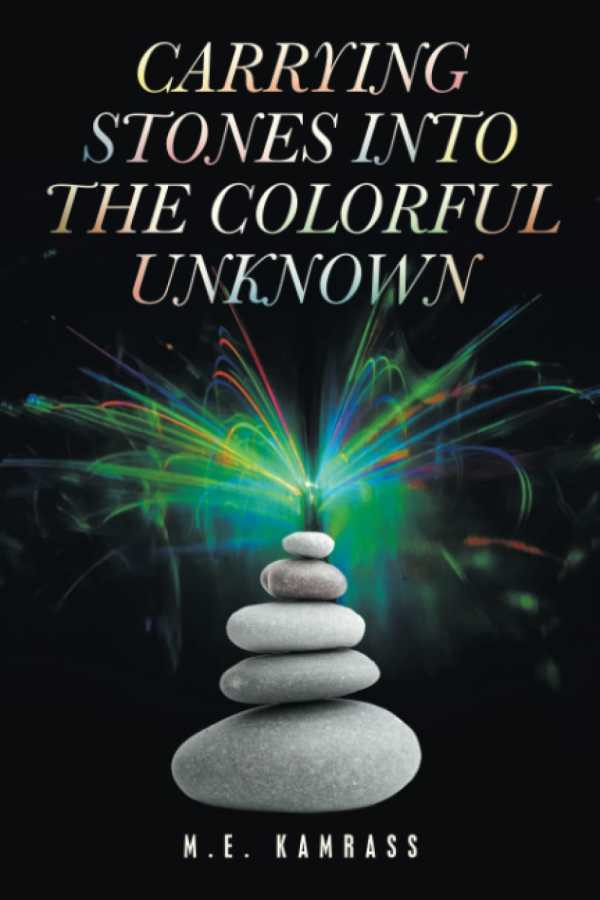Carrying Stones into the Colorful Unknown
The poetry collection Carrying Stones into the Colorful Unknown muses through the paradoxes of human existence and considers the monotony of everyday life.
In M. E. Kamrass’s paradoxical poetry collection Carrying Stones into the Colorful Unknown, even mundane experiences have long-lasting implications.
Drawing on personal experiences, philosophy, and a range of poetic strategies, these poems are concerned with identity formation and dissolution. Here, stones represent people’s experiences; they are carried in “the invisible sack on your back.” But the metaphor has its limits: although identity is treated as a weight, it is also seen as malleable, and though some of the “stones” represent concrete things, like the body, and abstract notions, like perception, both can change.
Divided into six sections that center the image of carrying stones, the book assumes a logical progression through stages of human experience, including naïveté, recognition, and escape. Most poems are written in free verse stanzas, but in some, the stanza patterns are jettisoned in favor of lines, words, and individual letters that are scattered on the page in dramatic formats, mimicking isolation and separation. Rhymes are sometimes used to similar effect, used to illustrate human life’s unvarying path. But the book’s rhymes are too often predictable, with its few slant rhymes standing out as welcome deviations.
Some fresh imagery arises, including around messages of self-abnegation. “Materials and Structures” considers the repetitive nature of the built environment and the individual’s dispersal through it: “Every place where repetition reigns, / my hair grows from the cracks / like grass or drapes down like vines.” However, most of these poems are didactic and written in a disembodied voice, often addressing the audience in direct terms. Such poems aim to impart their world views or to teach lessons. Hints of narrative appear in a few entries, which fall short because individual consciousnesses or characters remain obscured.
Further, the collection’s cynical tone is off-putting. It suggests that “life’s greatest hobby [is] / to notice its monotony.” In the end, this burdensome cynicism weighs the book down—reifying its notion that human experience itself is a burden, though while sacrificing audience engagement to do so. And though photographs are interspersed between the book’s sections, they are either too blurred or too pixelated to be effectual as particular representations of, or complements to, the book’s themes.
The poetry collection Carrying Stones into the Colorful Unknown muses through the paradoxes of human existence and considers the monotony of everyday life.
Reviewed by
Michele Sharpe
Disclosure: This article is not an endorsement, but a review. The publisher of this book provided free copies of the book and paid a small fee to have their book reviewed by a professional reviewer. Foreword Reviews and Clarion Reviews make no guarantee that the publisher will receive a positive review. Foreword Magazine, Inc. is disclosing this in accordance with the Federal Trade Commission’s 16 CFR, Part 255.

